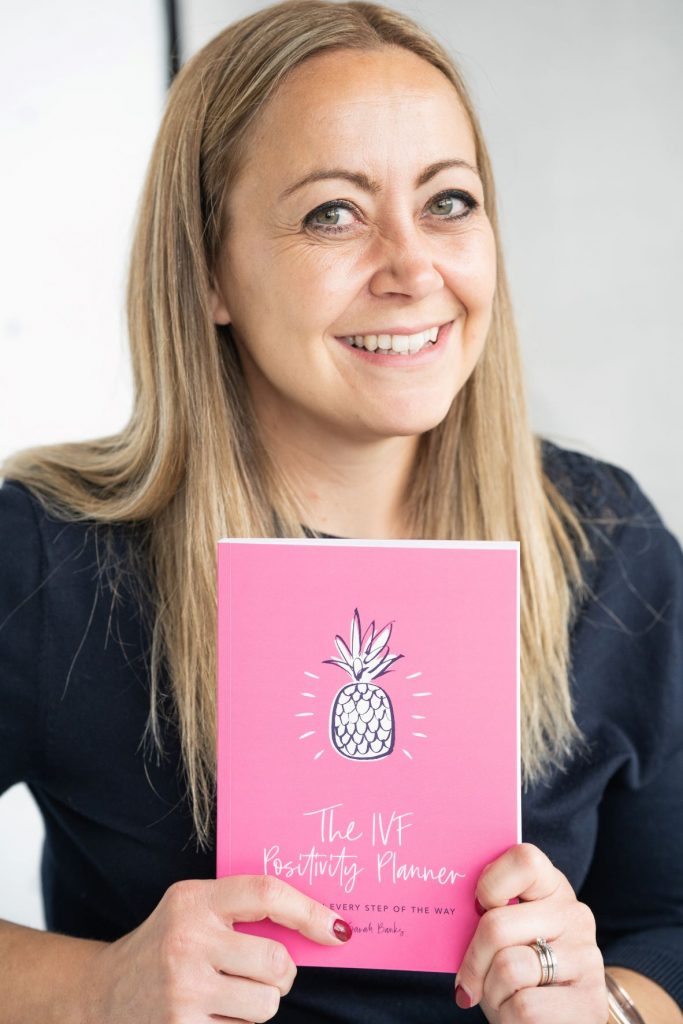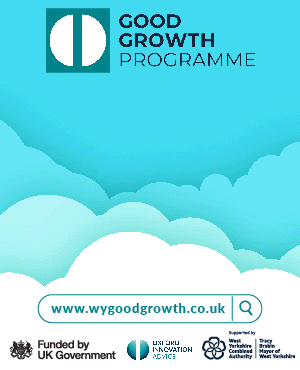One in six couples in the UK struggle to conceive, with around 68,000 women going through IVF every year in the UK.
Tragically, research has shown that women struggling with infertility experience the same level of depression as women with cancer, HIV and heart disease.
Mum-of-two SARAH BANKS, of Ainley Top, experienced her own struggles with IVF and quickly realised how little support was available.
Inspired to help she wrote The IVF Positivity Planner, a diary and journal that supports people through infertility and the IVF process.
Sarah also set up the Yorkshire Fertility Support Group in 2016 which today offers peer advice and support to over 850 members.
Sarah underwent two rounds of IVF before she and her husband had their first baby. Here, writing for Huddersfield Hub, she offers some advice to parents.
SARAH WRITES: If you are trying to become parents and are considering IVF, you have almost always tried other forms of infertility treatment, and it either hasn’t worked or is unlikely to work. The news can be devastating and the consequences are huge.
I have personally experienced the heartbreak of wanting and waiting for a baby; it took six years and two rounds of IVF before my husband and I had our first child.
The experience was an emotional roller-coaster of anxiety, waiting and numerous medical procedures which at times were unpleasant and painful.
Choosing IVF as a fertility program is a big decision. It is expensive, is sadly not always successful and it can be a difficult and stressful process to manage.
The first step is to talk with your GP who can offer you some basic and sensible advice about IVF, and once you’re ready, you can be referred to a specialist or clinic.
It’s important to understand that this isn’t your fault, you’re not alone and your feelings are normal – infertility is a medical issue that you have no control over, so you shouldn’t feel guilty about it.

When you start looking for support, you realise just how many other people are going through the same thing and are feeling exactly the same way.
One out of every six couples struggle to conceive – many silently. Here’s a few things you should know if you’re trying to get pregnant and help you on your road to parenthood:
Take control of the things you CAN do
Infertility makes us feel out of control, and IVF forces us to put most of that control in the hands of our consultant, but there are things you can do to improve your fertility and help you feel in charge of your treatment:
- Lifestyle – eat a healthy balanced diet, get enough rest, take advised vitamins, gentle exercise, kick the bad habits such as alcohol/smoking;
- Mindset – find coping techniques that work for you, managing your negative thoughts, self-care, getting support (seeing a counsellor);
- Practical – researching treatment, planning logistics of treatment.
Focus on coping as a couple
It’s so important to remember what you love about each other and ensuring that your IVF journey doesn’t come between you. A few things you can do to help keep your relationship on track:
- Don’t place blame, it’s a joint problem;
- Set designated ‘No baby/IVF’ talk times;
- Plan quality time together;
- Create a list of things you used to do/enjoy together and do them;
- Accept that you may cope differently;
- Have some support, other than each other;
- Don’t just have baby making sex.
Get Support
You’re going to watch friends get pregnant easily. You’ll see people who didn’t want babies have them. And all the while you’ll be waiting and trying. That can feel overwhelming and there are so many ways you can reach out for support if you’re struggling, all at different levels of intensity:
- Fertility counsellors – if there isn’t one linked to your clinic, you can look at @wearebica website for counsellors that are local to you;
- Support groups – there are lots of support groups full of amazing people, including my Facebook group which you’re welcome to join (it’s called TTC Support UK);
- Fertility charities – they offer lots of support and advice @fertilitynetworkuk @resolveorg
- The HFEA offers lots of advice and guidance on fertility treatment;
- Fertility support services – coaches, acupuncturists, reflexologists, hypnotherapists.
Research treatment before you start
That way you feel more in control, you can ask questions at your appointments and make informed decisions. Research different treatments, different clinics, different support.
Make a note of all your questions and answers taken during appointments and don’t be afraid to ask even more questions.
And finally, remember one thing. Your relationship with yourself is the most important relationship you have when you’re struggling to get pregnant or are going through fertility treatments.
Be your own best friend. Keep your head up and keep looking forward. IVF can be a long journey but it can be a successful one.


















